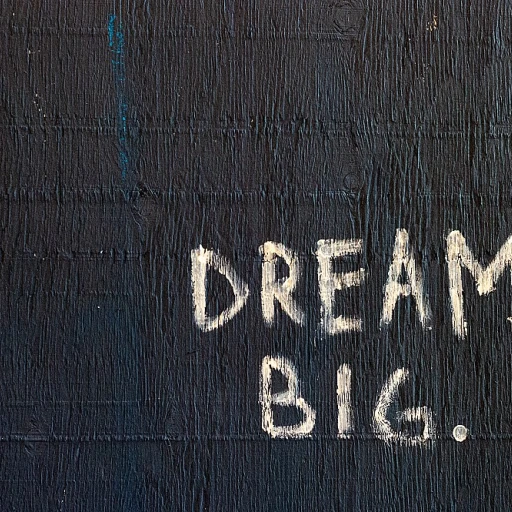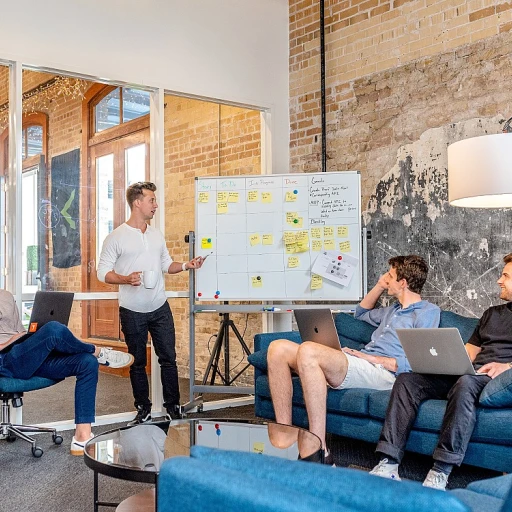
Understanding the New Zealand Work Culture
Embracing the Kiwi Work Ethic
Understanding the New Zealand work culture is crucial for any hiring manager. The Kiwi work ethic is characterized by a strong sense of community and collaboration. When interviewing candidates, it's essential to ask questions that reveal how they perceive teamwork and their role within a company. For instance, you might ask, "Can you describe a time when you worked as part of a team to achieve a common goal?" This question helps gauge their ability to work collaboratively, a key component of the New Zealand work environment.
Balancing Professionalism and Informality
New Zealand workplaces often strike a balance between professionalism and a relaxed atmosphere. During the interview process, consider asking questions that explore how candidates handle this balance. For example, "How do you adapt your work style to fit different company cultures?" This question will help you assess their flexibility and adaptability, which are vital soft skills in any job.
Commitment to Long-Term Growth
New Zealand companies value long-term commitment and growth. When evaluating job candidates, it's beneficial to ask about their career aspirations and how they align with the company's goals. A question like, "Where do you see your career in five years, and how do you plan to achieve those goals?" can provide insights into their long-term potential and dedication. For more insights into long-term employment, you might find this resource helpful.
By focusing on these aspects during the interview, hiring managers can ensure they select candidates who not only have the necessary skills but also fit well within the unique New Zealand work culture.
Evaluating Cultural Fit
Finding the Right Cultural Fit
When interviewing candidates for a role in a New Zealand company, evaluating cultural fit is crucial. The right fit ensures that the candidate will thrive in the company culture and contribute positively to the team. Here are some key interview questions to help assess this aspect:
- Describe a time when you had to adapt to a new work environment. What did you learn from that experience? This question helps to gauge the candidate's adaptability and openness to new experiences, which are essential in a diverse workplace.
- What aspects of our company culture do you find most appealing? This question allows the candidate to express their understanding of your company culture and how they see themselves fitting in.
- Can you give an example of a time when you worked with a team to achieve a common goal? This question assesses the candidate's teamwork skills and their ability to collaborate effectively with others.
- How do you handle conflicts within a team? Understanding a candidate's conflict resolution skills is vital for maintaining a harmonious work environment.
These questions help hiring managers identify candidates who not only have the necessary skills but also align with the company's values and work style. For more insights on propelling leadership conversations, you can explore key questions to propel leadership conversations.
Assessing Problem-Solving Skills
Unveiling Analytical Capabilities
In a New Zealand work environment, the ability to effectively solve problems is a vital asset for any employee. When you're conducting a job interview, understanding how a candidate approaches and resolves challenges can offer valuable insights into their thinking process and potential contributions to the team. During the interview process, aim to incorporate behavioral interview questions that shed light on their problem-solving skills.
- Questions help uncover strategies your candidates will employ in overcoming obstacles. Asking about a "time when" they encountered a specific challenge and how they handled it can demonstrate their ability to think critically under pressure. Such job interview questions probe their thought process, ensuring you evaluate candidates with well-rounded problem-solving experience.
- The interview questions should be formulated to reveal whether a candidate can promptly identify the root cause of a problem or if they focus on temporary solutions. Be open to understanding their perspective and methods, as occasionally, modern challenges in a company require creative or unconventional solutions.
- Discovering how adaptable a candidate is can also be intrinsic in this evaluation. You can ask them to describe a time when they had to alter their approach to solving a problem due to changing circumstances, and how this reflected their ability to thrive within a dynamic company environment.
Unpacking these facets of a candidate's problem-solving skills will help you gauge their potential to contribute meaningfully to your company culture. Furthermore, understanding their previous experiences can provide context to their future role within your organization, paving the way for long-term potential and growth.
For more insights into hiring practices and management styles in New Zealand businesses, you might find the role of a Chief of Staff in a New Zealand company enlightening.
Communication and Interpersonal Skills
Assessing Effective Communication and Building Interpersonal Connections
In any job within a New Zealand company, communication and interpersonal skills are pivotal. These soft skills are not only essential for individual roles but are also the backbone of successful teamwork and collaboration. During the interview, it's crucial for hiring managers to gauge how candidates articulate their thoughts, interact with others, and integrate within the company culture. To achieve this understanding, consider incorporating open-ended interview questions that encourage candidates to provide detailed answers. For example, ask candidates to "describe a time when they had to convey complex information to a team with varying levels of understanding." This question allows you to assess their ability to simplify information while ensuring clarity and understanding. Another approach is to explore the candidates' collaborative experiences by inquiring, "Can you provide an example of a successful team project, and your role in it?" This question helps in understanding the candidate's experience in team dynamics and their work style when placed within a group setting. Pay attention not just to their verbal answers, but also to non-verbal cues such as eye contact and body language, as they provide additional insights into a candidate's confidence and engagement levels during the interview process. With these insights, hiring managers can better determine if the candidate's communication approach aligns with the company's needs and culture. Evaluating these skills is just one part of the comprehensive process of hiring the best fit for the role and ensuring the long-term success and cohesion of your team.Technical Competency and Adaptability
Assessing the Ability to Embrace Change
In today's rapidly evolving work landscape, the ability for candidates to display technical competency and adaptability is critical. These skills help individuals not only perform their duties effectively but also adjust to new challenges and technological advancements that emerge in a company. When interviewing job candidates for a role in New Zealand, hiring managers should ensure that their interview questions are designed to assess both current skills and the capacity to acquire new knowledge. A robust set of questions and answers will enable the interviewer to gain insights into the candidate's proficiency with relevant technologies, as well as their systematic approach to problem-solving. One can ask questions like:- "Describe a time when you had to learn a new technology or system quickly. How did you manage the process?"
- "How do you stay updated with the latest technical innovations in your field?"
- "Can you give an example of when you adapted to a significant change in a project or work environment?"
Long-Term Potential and Growth
Identifying Long-Term Potential in Candidates
When interviewing candidates for a role in your company, it's crucial to assess their long-term potential and growth. This not only ensures that the candidate will fit into the company culture but also that they will continue to develop and contribute to the team over time. Here are some key areas to focus on:
- Career Aspirations: Ask questions that help you understand the candidate's career goals. For instance, "Where do you see yourself in five years?" or "What are your long-term career aspirations?" These questions help gauge if the candidate's ambitions align with the company's future plans.
- Adaptability and Learning: Inquire about a time when the candidate had to learn a new skill or adapt to a significant change. This will help you assess their ability to grow and evolve with the company. A question like "Describe a time when you had to quickly adapt to a new situation at work" can be insightful.
- Commitment to Growth: Evaluate their commitment to personal and professional development. Ask about any courses or training they have undertaken recently and how they have applied these learnings in their current or past roles.
- Feedback Reception: Understanding how candidates handle feedback is crucial. Ask them to describe a time when they received constructive criticism and how they responded. This will give you insight into their willingness to improve and grow.
By focusing on these areas, hiring managers can better determine which job candidates are likely to thrive and grow within the company, ensuring a successful and enduring employment relationship.













